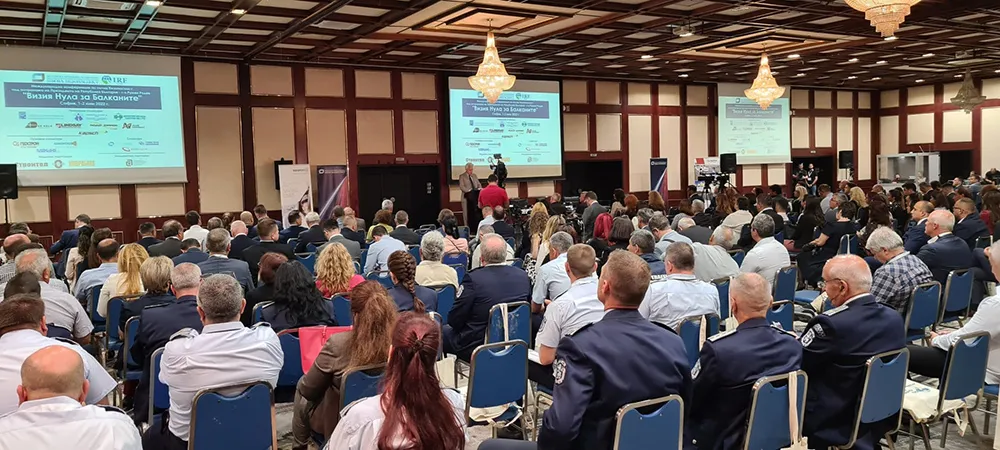Sustained public information campaigns on road safety can play a crucial role in reducing road fatalities on Gulf Cooperation Council (GCC) roads, according to a UK government marketing professional, whose public communication campaigns have helped reduce deaths on British roads by 45 per cent in the last decade.
April 26, 2012
Read time: 2 mins
Sustained public information campaigns on road safety can play a crucial role in reducing road fatalities on Gulf Cooperation Council (GCC) roads, according to a UK government marketing professional, whose public communication campaigns have helped reduce deaths on British roads by 45 per cent in the last decade.
Emma Stranack, deputy director of external communications at the5432 Department for Transport in the UK, said that raising and sustaining public awareness of the key risks of speeding, mobile phone use and not wearing seatbelts helps change attitudes about road safety, leading to safer and more considerate road behaviour.
Stranack has led the development and delivery of the UK Government’s Think! public awareness campaigns on road safety. The campaigns, which include advertising, partnership marketing and digital engagement, have contributed to a 45 per cent reduction of road fatalities on British roads in the last decade – from 3,409 in 2000 to 1,850 in 2010.
She will be among an expert line-up of road safety experts at the sixth edition of the224 Gulf Traffic Conference, taking place from the 12-13 December 2011 at the Dubai International Convention and Centre.
Stranack will provide an overview of the role of communications in UK road safety at the conference, including case study examples of Think! campaigns covering priority issues such as speeding and wearing seatbelts.
Increasing road safety and reducing traffic are top priorities for regional governments, and are the main topics of discussion at the two-day Gulf Traffic Conference 2011. The event will bring together leading regional and international road traffic and transportation experts.
“It is clear that the GCC region is taking road safety seriously and is making good progress in addressing the main issues,” added Stranack. “Events such as Gulf Traffic 2011 should reinforce this by sharing best practice and insight from across the region and by reviewing international case studies to help inform the design of road safety measures.
“As part of the UN Decade of Action on Road Safety, I am honoured to represent the UK Department for Transport at the conference and share what we have learned about how communications can help contribute to reducing road casualties.”
Organised by Informa Exhibitions, the conference runs alongside the Gulf Traffic Exhibition, which has so far confirmed an exhibitor line-up of 149 contractors, manufacturers and suppliers from 27 countries in the Middle East and overseas.
Emma Stranack, deputy director of external communications at the
Stranack has led the development and delivery of the UK Government’s Think! public awareness campaigns on road safety. The campaigns, which include advertising, partnership marketing and digital engagement, have contributed to a 45 per cent reduction of road fatalities on British roads in the last decade – from 3,409 in 2000 to 1,850 in 2010.
She will be among an expert line-up of road safety experts at the sixth edition of the
Stranack will provide an overview of the role of communications in UK road safety at the conference, including case study examples of Think! campaigns covering priority issues such as speeding and wearing seatbelts.
Increasing road safety and reducing traffic are top priorities for regional governments, and are the main topics of discussion at the two-day Gulf Traffic Conference 2011. The event will bring together leading regional and international road traffic and transportation experts.
“It is clear that the GCC region is taking road safety seriously and is making good progress in addressing the main issues,” added Stranack. “Events such as Gulf Traffic 2011 should reinforce this by sharing best practice and insight from across the region and by reviewing international case studies to help inform the design of road safety measures.
“As part of the UN Decade of Action on Road Safety, I am honoured to represent the UK Department for Transport at the conference and share what we have learned about how communications can help contribute to reducing road casualties.”
Organised by Informa Exhibitions, the conference runs alongside the Gulf Traffic Exhibition, which has so far confirmed an exhibitor line-up of 149 contractors, manufacturers and suppliers from 27 countries in the Middle East and overseas.









